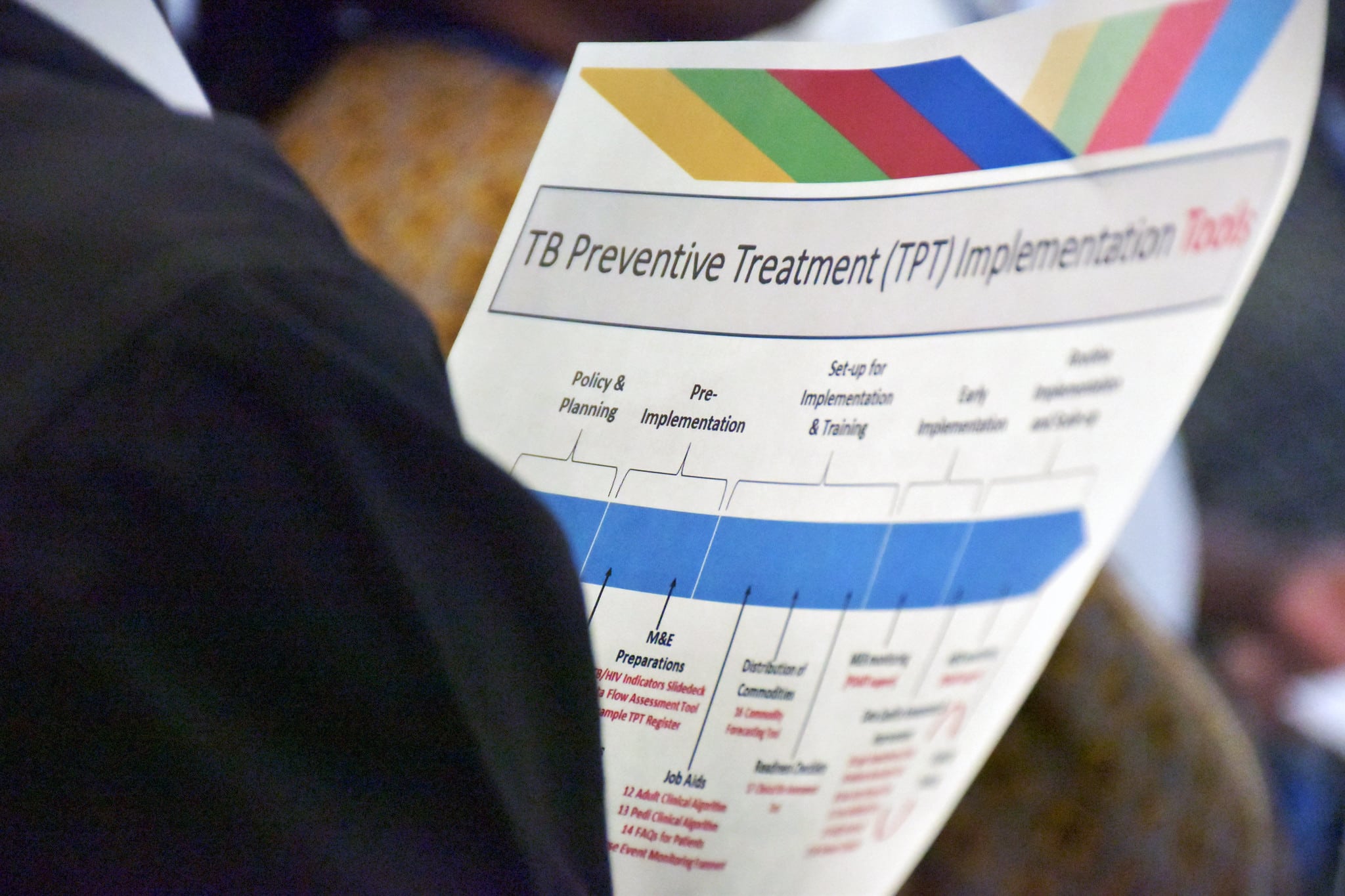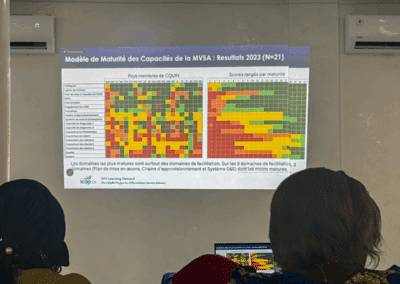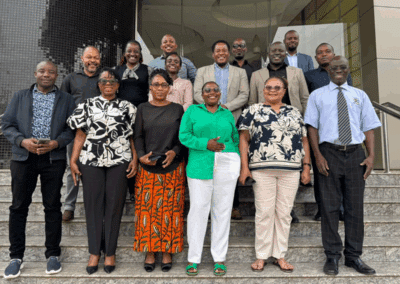CQUIN works to cultivate a dynamic platform for member countries to share knowledge and co-create resources. CQUIN Communities of Practice (CoPs) are a growing element of the learning network, convening member countries to work on shared challenges and opportunities related to scaling up high-quality differentiated service delivery (DSD). Countries can opt into the CoP most relevant to their context, participating remotely via teleconference and email and in person at CQUIN workshops. Most CoPs focus on co-creating resources and tools and many are time limited. New CoPs are formed ‘on demand’ when CQUIN member countries identify a new area for collaboration.
The following snapshots provide updates on what CQUIN’s CoPs have been up to:
Differentiated Monitoring and Evaluation (M&E)
Recognizing the need to adapt routine M&E systems in the context of DSD scale-up, CQUIN participants rated differentiated M&E as one of the most important challenges at the CQUIN Launch Meeting in March 2017. Since then, 26 experts from six member countries have worked together to develop an M&E Framework that defines a broad set of DSD indicators and serves as a guide to countries scaling up differentiated ART services. To date, the CoP has convened ten virtual meetings and two in-person sessions that have enabled member countries to develop the framework and other resources, adapt and pilot tools, and identify new challenges. In 2019, the CoP worked do develop a toolkit for conducting ad hoc DSD data review meetings to obtain the information critical to assessing DSD coverage, fidelity, and impact.
National DSD Coordinators
Launched in April 2017, this CoP convenes a virtual meeting every two months, bringing together national DSD coordinators from 11 CQUIN member countries to exchange information, best practices, tools, and resources. It also enables ICAP experts to provide direct mentorship and technical assistance to national DSD coordinators.
“The DSD Coordinators CoP platform has helped with the rapid exchange of policy guidelines, training materials, and SOPs among member countries,” said CQUIN project director, Peter Preko, MD, MPH. “This has reduced the time needed to implement new DSD policies.”
Patients at High Risk of HIV Disease Progression
Between July 2017 and August 2018, this CoP convened 20 experts from five network countries for an in-depth look at the challenges facing programs working to design and implement DSD for patients at high risk of HIV disease progression. With participation from clinicians, ministerial officials, and people living with HIV, the CoP co-created a screening tool for use by frontline health workers to identify “red flags” (including structural, clinical, and psychosocial barriers to treatment adherence) that help to determine which patients require additional assessment and care management. The finalized tool will be available soon via the CQUIN website.
Quality and Quality Improvement (QI)
In October 2018, CQUIN held a three-day workshop in Malawi that focused on the use of quality improvement (QI) methods to enhance DSD. Recognizing the high interest in this topic, the Quality and QI CoP was launched in January 2019. In addition to providing updates on their QI projects, CoP members realized that there were no commonly accepted quality standards for DART programs. This led to an expansion of the CoP’s scope of work and to the active engagement of 40 participants from ten member countries in the co-creation of a quality standards framework for differentiated ART models. The CoP is currently working to develop accompanying quality indicators, and to continue sharing the results of QI projects aimed at enhancing DSD services.
Recipients of Care Engagement
Recognizing that the active engagement of recipients of care and communities is essential to closing pervasive gaps in service delivery, the Recipients of Care Engagement CoP was launched in February 2019. Co-convened by ICAP and the International Treatment Preparedness Coalition (ITPC), the CoP convenes 19 experts from 11 network countries, including representatives of national and regional networks of people living with HIV. To date, participants have convened via three virtual meetings and three in-person meetings to share best practices and develop strategies to deepen community participation in DSD models. The CoP is currently co-creating a community engagement framework and monitoring tool to be used by ministries of health to improve and accelerate engagement of people living with HIV in DSD policy planning, program design, implementation, and M&E.
Differentiated TB/HIV Services
In March 2019, ICAP and the World Health Organization (WHO) hosted a seven-country workshop on Differentiated Service Delivery: Opportunities and Challenges for TB Prevention and Care. Following the meeting, the “Differentiated TB/HIV” CoP was launched, with an initial focus on supporting integration of tuberculosis preventive treatment (TPT) and intensive case finding into DART models. Convening nearly 50 experts from 11 network countries and global agencies such as the WHO and the U.S. Centers for Disease Control and Prevention (CDC), this CoP is currently co-creating a “Differentiated TB/HIV toolkit” to expand the integration of TB preventive treatment in network countries.
“The CQUIN Communities of Practice enable colleagues and peers from across sub-Saharan Africa to collaboratively tackle very specific challenges related to scaling up high-quality DSD services,” said Miriam Rabkin, MD, MPH, director for health systems strategies at ICAP. “We look forward to continuing to facilitate their important work.”
Want to join a community of practice? Contact icap-cquin@cumc.columbia.edu to learn more.






